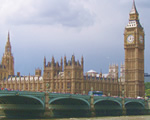 Go to main content
Go to main content
Archive Website of the UK government
Please note that this website has a UK government accesskeys system.
Main menu
Page menu
Government, citizens and rights

Where your rights come from

The rights and responsibilities you have today come from a number of different sources. They can come through Acts of Parliament and laws made by judges, and some from European law. Together they form the British Constitution.
The British Constitution
The British Constitution is a set of rules of government. Some of the rules are about procedures such as how often elections must be held. Others are concerned with the amount of power held by the government – specifying what the government can or cannot do.
Unlike most other countries, such as the United States of America or India, the British Constitution is not written down in a single formal document. Instead the rights and responsibilities we have as individuals and as a society are formed from a number of different sources.
Much of the constitution is based on unwritten customs and rules called conventions.
In addition further protection is provided by:
- formal written legislation created and agreed by Parliament - statute law
- law developed by judges as part of the justice system - common law
- law made in Europe which affects the UK as a factor of our membership in the European Union - EC law
Statute law
The first document to have influenced the constitution is the Magna Carta, written in 1215. This set down the king’s duty to his subjects and their rights and responsibilities. More recently, constitutional law has been affected by the Acts that brought Britain into the European Community in 1972, established the Scottish Parliament in 1998 and the Human Rights Act 1998. These laws enacted by Parliament are known as statute law. As a result of devolution, the Scottish Parliament is also able to create constitutional legislation that affects its citizens. The Northern Ireland Assembly and Executive have even greater powers.
Common law
Law and the rights and protections formed under them are also created by judges’ decisions in court. This is known as common law. Common law has its basis in precedent – this means that judges follow decisions made in similar cases to create a consistent, just and fair system. However, there are cases when the circumstances or facts of the case are very different, have not arisen before or are viewed by a senior judge as not reflecting current society, so that a decision is made to create or amend the law.
European law
European Community law, which applies in the UK, comes from EC treaties, Community legislation adopted under them, and decisions of the European Court of Justice. That court has the highest authority to decide points of EC law.
Where EU member states have agreed to act together, all laws passed at the European level are considered legally superior to domestic law, and are ultimately protected by a higher constitutional court, the European Court of Justice – in these circumstances, should European Community law and UK law conflict, EC law prevails.
Rights and responsibilities as a British citizen
There are a wide range of rights within the constitution, covering all aspects of life from human rights, such as freedom of speech and freedom from torture, to more specific rights such as those relating to education and healthcare, and protection from discrimination.
It is important to remember that the human rights incorporated into UK law through the Human Rights Act are not all absolute. They may be limited or withdrawn under certain circumstances.
With these rights come responsibilities such as loyalty, which means not plotting against the state, abiding by the law as a responsible citizen, and certain civic duties such as voting, jury service and giving evidence in court.
